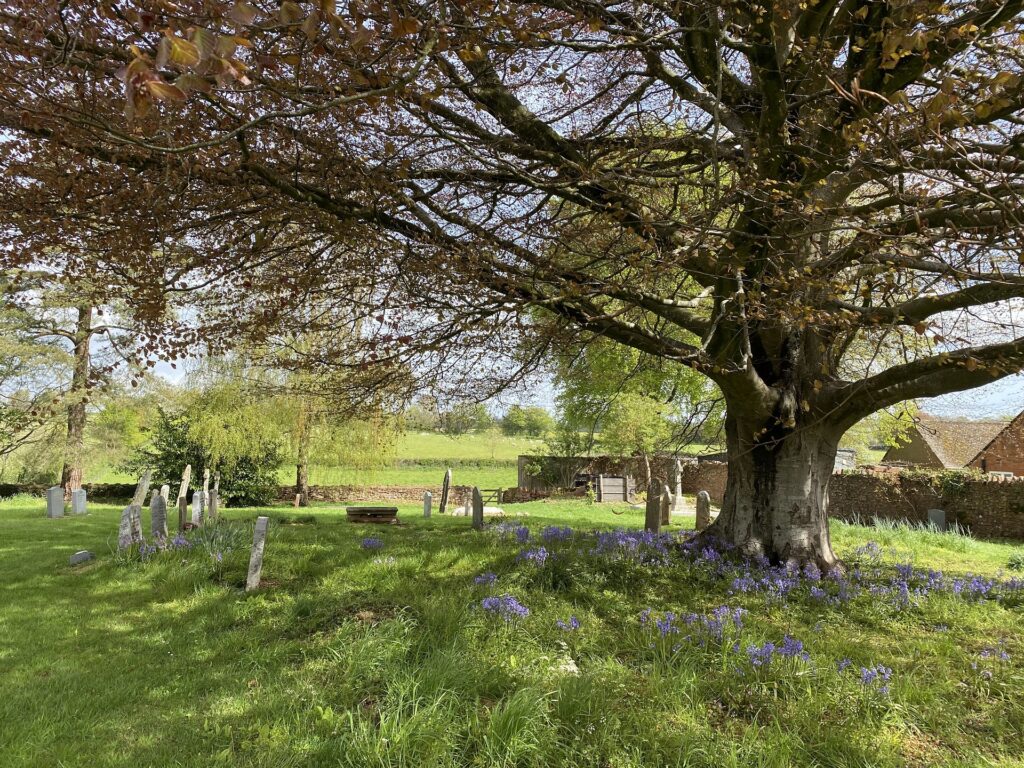Discuss the philosophical and moral reflections present in “Elegy Written in a Country Churchyard.” How does Gray explore universal truths and existential questions through his contemplation of life and death?

Philosophical and Moral Reflections in Elegy Written in a Country Churchyard
Thomas Gray‘s “Elegy Written in a Country Churchyard” is not only a meditation on mortality but also a profound exploration of philosophical and moral reflections. In this poem, Gray contemplates universal truths and raises existential questions about the nature of life, the inevitability of death, and the human condition. Through his introspective and contemplative verses, Gray invites readers to reflect on the transient nature of existence, the pursuit of fame and ambition, the equality of all individuals in death, and the significance of a life well-lived.
One of the key philosophical themes in the poem is the fleeting nature of life and the transience of human existence. Gray portrays this theme through various metaphors and images that evoke a sense of ephemerality. He writes, “The paths of glory lead but to the grave” (line 36), suggesting that no matter how illustrious or successful one’s life may be, it ultimately leads to death. This notion challenges the idea of earthly achievements and invites readers to contemplate the impermanence of worldly pursuits. Gray further reflects on the brevity of life with the lines, “The boast of heraldry, the pomp of pow’r, / And all that beauty, all that wealth e’er gave, / Await alike th’ inevitable hour” (lines 33-35). Here, he suggests that regardless of social status, wealth, or physical beauty, all individuals are subject to the same fate of mortality. This contemplation prompts readers to reflect on the temporary nature of worldly attributes and encourages them to seek deeper meaning beyond material possessions and superficial accomplishments.
Another philosophical reflection in the poem revolves around the pursuit of fame and ambition. Gray presents a critical perspective on the desire for recognition and the quest for immortality through external means. He questions whether fame and ambition truly bring lasting fulfillment or if they are merely fleeting illusions. Gray writes, “Some mute inglorious Milton here may rest, / Some Cromwell guiltless of his country’s blood” (lines 59-60), suggesting that there may be great talents and potential for greatness lying undiscovered and unrecognized in the churchyard. This notion challenges the notion that fame is reserved only for the privileged few and raises the question of how many remarkable individuals have gone unnoticed and uncelebrated. By portraying the churchyard as a repository of untapped greatness, Gray invites readers to contemplate the limitations of external recognition and encourages them to find significance and fulfillment in the pursuit of personal growth and inner virtues.
Gray further explores existential questions through his contemplation of the equality of all individuals in death. He emphasizes that death is the great equalizer, erasing all distinctions of social class, wealth, and power. Gray writes, “The boast of heraldry, the pomp of pow’r, / All that beauty, all that wealth e’er gave” (lines 33-34), highlighting that in death, these external markers of status lose their significance. The poem suggests that in the face of mortality, all individuals are equal, their accomplishments and worldly possessions become irrelevant. Gray’s contemplation challenges the hierarchies and inequalities of society, urging readers to recognize the inherent worth and equality of every human being.
Moreover, Gray raises moral reflections through his emphasis on the importance of leading a virtuous and meaningful life. He suggests that true greatness lies not in external achievements or fame, but in the impact one has on others and the moral virtues they embody. Gray writes, “The applause of list’ning senates to command, / The threats of pain and ruin to despise, / To scatter plenty o’er a smiling land” (lines 57-59), highlighting qualities such as compassion, integrity, and the ability to contribute to the well-being of others as measures of true greatness. By praising those who live virtuous lives and contribute to the betterment of society, Gray encourages readers to reflect on the ethical dimensions of human existence and to prioritize moral values over superficial pursuits.
The poem also raises questions about the nature of memory and the legacy one leaves behind. Gray contemplates the idea of being remembered or forgotten after death, highlighting the transient nature of human memory. He writes, “The short and simple annals of the poor” (line 103), suggesting that the lives of the common people may be forgotten and overlooked by history. This reflection prompts readers to consider the significance of individual lives and the ways in which one’s memory may endure beyond their physical existence. Gray’s contemplation on memory underscores the importance of personal connections and the impact one has on the lives of others. It also serves as a reminder to live a life of purpose and virtue, as one’s influence and memory may extend beyond their limited time on Earth.
In conclusion, Thomas Gray’s “Elegy Written in a Country Churchyard” delves into profound philosophical and moral reflections. Through his contemplation of life and death, Gray explores universal truths and raises existential questions about the transient nature of existence, the pursuit of fame and ambition, the equality of individuals in death, and the significance of a life well-lived. By encouraging readers to reflect on these themes, Gray invites them to seek deeper meaning, to prioritize moral virtues over external achievements, and to appreciate the inherent worth and equality of every human being. The poem serves as a poignant reminder to embrace the fleeting nature of life and to live a life that leaves a positive and lasting impact on others.
*****
Read More: Questions and Answers from Elegy Written in a Country Churchyard by Thomas Gray


